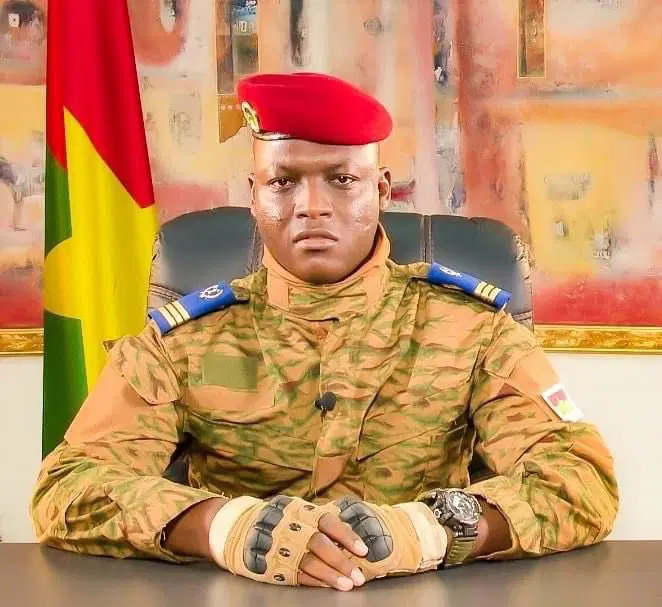By Olaoluwa Vincent Ajayi
Burkina Faso’s President, Captain Ibrahim Traoré, declared that the country is not governed by democracy, but is instead undergoing what he calls a ‘popular and progressive revolution.
Speaking at a flag-raising ceremony at the Koulouba Palace, Traoré dismissed democracy as a path to development, stating, “It is impossible to name a country that has developed in democracy. Democracy is only the result.”
“If we have to say it loud and clear here, we are not in a democracy. We are in a popular, progressive revolution,” he said. “So this question of democracy or libertinism of action or expression has no place. As much as you think you are free to speak and act, the other is also free to speak and act, and there we end up with a society of disorder.”
Traoré emphasized that his administration will continue efforts to “communicate, explain, and make people understand what revolution is.”
Since assuming power in September 2022 following a military coup, the 37-year-old leader has taken a defiant stance against what he sees as foreign influence and ineffective governance models.
He recently made headlines for rejecting an offer by Saudi Arabia to build 200 mosques in Burkina Faso, instead urging the Gulf nation to invest in infrastructure projects such as hospitals, roads, and schools that directly benefit citizens.
Born in 1988 in the commune of Bondokuy, Traoré studied geology at the University of Ouagadougou and later joined the military, rising to the rank of captain in 2020. His rise to power came after a second coup in 2022 ousted interim President Paul-Henri Damiba, amid growing discontent over the handling of jihadist violence in the country.
Traoré’s leadership marks a shift away from Western-style democratic frameworks. In May 2024, his transitional government extended its mandate by five years, setting a 60-month timeline beginning July 2, 2024.
Despite pledges to restore order, Burkina Faso continues to grapple with insecurity, with large portions of the country under control of extremist groups. Traoré’s revolutionary rhetoric, combined with a growing pivot away from traditional democratic ideals, has raised questions about the long-term direction of governance in the West African nation.
International observers remain cautious as Traoré attempts to chart a new course — one rooted in centralized authority and a rejection of conventional democratic norms.



